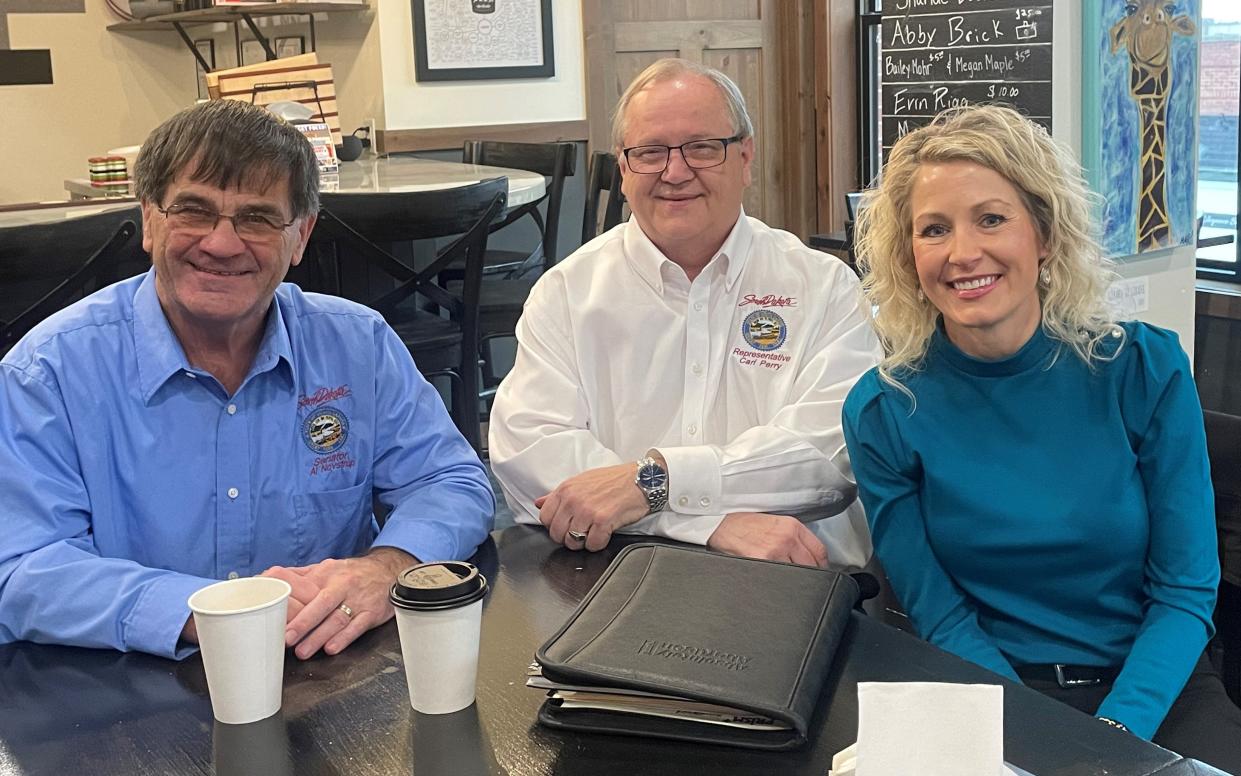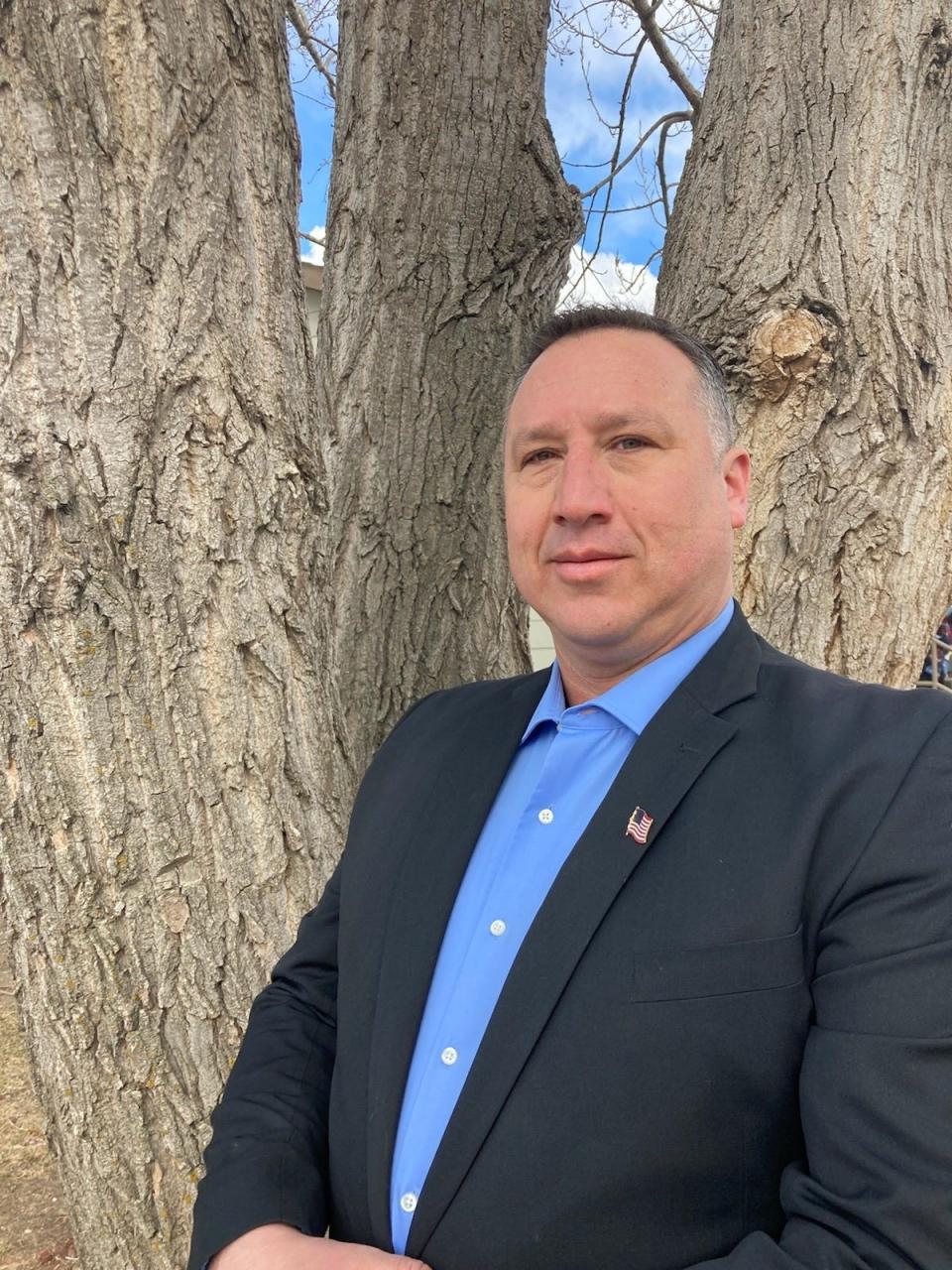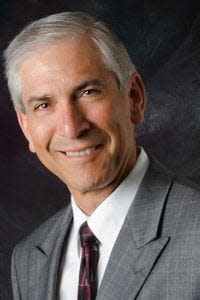Legislators expect discussion about repealing the sales tax on food, jail funding options

- Oops!Something went wrong.Please try again later.
With hundreds of bills expected to be considered during the 2023 legislative session it will come as no surprise that the topics will be as varied as the number of legislators in the room, but several agree the governor's proposal to eliminate the state's sales tax on food will be a topic that will see some debate.
District 3 Rep. Carl Perry, R-Aberdeen, said the proposed tax cut on food will be a topic of discussion along with Medicaid expansion and the state funding that will be needed to cover the expanded benefits.
Voters agreed in November that Medicaid benefits should be expanded, but that means setting aside $14 million the first year; $17 million the second year; and about $80 million annually the next two years.
While the state has excess funds this year, he said, legislators need to be cautions.
Newly elected District 3 Rep. Brandei Schaefbauer agreed although money is there to spend, any decisions made have to make sense and not put any additional burden on the taxpayers.
Distrct 3 Sen. Al Novstrup said he's currently listening to the debate surrounding the proposal to eliminate sales tax on food, but didn't weight in on either side.
But, Perry said he favors a reduction in the sales tax, noting votes to that effect in the previous legislative session. Those votes proposed elimination of the food tax; reducing the state sales tax from 4.5% to 4%; and a gas tax relief proposal. None of those bills became law.
Novstrup said another sales tax-related proposal that could come up this year is one that aims to share sales tax revenues with counties when it comes to the sales tax revenue collected on county property -- like the Brown County Fairgrounds. Novstrup said this is an idea that came from former county commissioners and current Brown County Fair Manager Rachel Kippley.
When it comes to a county fair, Novstrup said, counties take the risk.
"Some (sales tax revenue) should go back to the county," Novstrup said.
In other county-related proposals, Novstrup said he'd also like to see the legislature lift the limit on county levy adjustments. Currently that's limited to 3% or the rate of inflation, whichever is less.
Novstrup is on the Senate Taxation Committee and Perry is the House Taxation Committee.
"We have a better chance to do more with counties this year," he said.
Novstrup said it comes down to giving counties back some local control over their funding.
Discussion about regional jail funding, options expected
In Brown County, a proposal to develop a regional jail has been a hot topic. The South Dakota Legislature heard a proposal in the 2022 session to provide funding for the jail's construction, but the legislature instead set $86 million aside in an Incarceration Construction Fund and sought a summer study to determine how the funding was spent.
Legislators have categorized this funding as being set aside for the construction of regional jails, but according to Senate Bill 144, which established the fund, it was set aside for improvements to any incarceration facility in South Dakota, and Gov. Kristi Noem proposed using money from that fund to make improvements to two state prison facilities.
Still, Novstrup expects at least two proposals to be heard by the legislature -- one to establish a loan or grant fund counties could tap for the construction of jail facilities; and one that allows multiple counties to come together and set up a consortium that can then collectively levy a tax for the completion of a project. Novstrup said Rapid City is interested in this idea.
Novstrup said another topic he's watching is a proposal out of France to ban meat names when marketing plant-based foods. That proposal bans the use of stake and sausage when marketing plant-based alternatives.

Newly elected District 1 Rep. Joe Donnell, R-Sisseton, said he plans to start his tenure by building relationships and determining the topics that are most important.
When he was elected one topic he mentioned was finding a way to help non-native students who attend Sisseton Wahpeton College. While tuition is free for Native Americans who attend, non-native students who elect to go to the local campus pay tuition. Donnell would like to see some state support. Sisseton Wahpeton College is one of five tribal colleges in South Dakota, according to the state Department of Education.
He'd also like to see something done to help shut down the supply lines of fentanyl flowing into Native American communities.
"We need to look at something that would be more of a deterrent for dealers," Donnell said also pointing to the current drug court system aimed at helping people recover from drug use instead of sending them to prison. Donnell said that program has opportunities for greater success.
Schoenbeck planning bills that will ultimately require a decision by the voters
District 5 Sen. Lee Schoenbeck, R-Watertown, said he plans to introduce two bills that, if passed and approved by the governor, would go to the voters for consideration.
The first bill would propose a new way of selecting circuit court judges. Voters currently select circuit court judges every eight years and those elections have the potential to be a contested election if someone else is interested in the position, but during a campaign for re-election, Schoenbeck said, a judge can't justify decisions made in court cases.
Instead, Schoenbeck is proposing what he refers to as the Missouri Plan. Under this proposal, he said, a Judicial Qualifications Committee provides a list of qualified candidates to the governor for consideration when there's a vacancy. And, when those terms come up for election, Schoenbeck said, there would be a retention election, much like the process used for the South Dakota Supreme Court Justices.
Schoenbeck said another proposal he'd like to see voters consider is removal of the Blaine Amendment from the state's constitution. This amendment prohibits state support of schools with religious affiliation. Schoenbeck said he thinks it's time the state repeals this amendment, but, he said, while he thinks the amendment isn't needed in the state's constitution, he's not advocating that private schools be added to the state's student aid formula.
Housing infrastructure issue resolved
Schoenbeck said one of the first bills he expects the legislature to consider will resolve disputes about how a Housing Infrastructure program will operate. The South Dakota Legislature set aside $200 million for a housing infrastructure program during the 2022 legislative session, but it's been in a holding pattern since.
Schoenbeck said proposed legislation will resolve questions about the operation of that program and allow The South Dakota Housing Authority to start processing applications for funding.
Deutsch expects abortion to be a hot topic
At least one area legislator feels a national topic of interest will also see discussion during the 2023 session. District 4 Rep. Fred Deutsch said he expects abortion to be a hot topic.
"I think we'll see numerous bills trying to address aspects of the abortion law trying to see where South Dakota feels comfortable with restrictions or no restrictions," he said.
He also expects a bill related to marijuana that would help differentiate between medical and recreational marijuana.

Deutsch said he also agrees the proposal to repeal the state's sales tax on food to be a hot topic. He supported it before, he said, and likely will again, but, he said he wrestles with whether the decision is wise.
"Is it prudent to say goodbye to $100 million in tax revenue for food in light of Medicaid expansion?" he said. "That's the $100 million question."
but other tax-relief proposals may also be on the table. Both he and Perry noted a proposal to provide property tax relief. The proposed legislation, that came as a recommendation following a property tax summer study, would exempt the first $100,000 in value on an owner occupied home.
While a good idea, Perry said, he can't support it without a way to pay for it.
Deutsch said he also plans to introduce legislation that prohibits no compete contracts for mental health professionals.
This article originally appeared on Aberdeen News: State legislators expect discussion about repealing the sales tax on food

